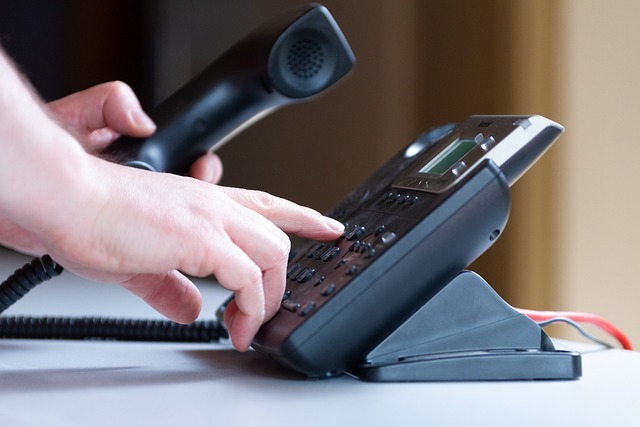In today’s digital age, healthcare providers must navigate a complex landscape of regulations and technologies to serve their patients. One critical aspect of maintaining compliance is ensuring that every aspect of your practice adheres to the Health Insurance Portability and Accountability Act (HIPAA). This includes choosing a medical phone answering service that meets stringent HIPAA requirements. In this guide, we’ll explore what makes a phone answering service HIPAA-compliant and how to choose the right one for your practice.
Understanding HIPAA Compliance
HIPAA is a federal law designed to protect sensitive patient information from being disclosed without the patient’s consent. For healthcare providers, HIPAA compliance is not optional; it’s a legal requirement. This regulation affects various aspects of healthcare operations, including patient communication, data storage, and data transmission.
A HIPAA-compliant phone answering service ensures that all patient information handled during phone interactions is kept confidential and secure. This includes implementing appropriate safeguards, both technical and administrative, to protect patient data.
Key Features of a HIPAA-Compliant Answering Service
Secure Data Transmission and Storage
One of the primary requirements for HIPAA compliance is secure data transmission and storage. A HIPAA-compliant answering service must use encryption for data transmitted over the internet and ensure that all stored data is encrypted. This prevents unauthorized access and protects patient information from breaches.
Confidentiality Agreements
Staff working for a HIPAA-compliant answering service must sign confidentiality agreements, acknowledging their responsibility to protect patient information. These agreements are part of the Business Associate Agreement (BAA), a contract required under HIPAA that outlines the service’s obligations regarding patient data.
Employee Training
Regular employee training is crucial to maintaining HIPAA compliance. Before you call a HIPAA compliant phone answering service provider, The answering service should provide comprehensive training to its staff on handling sensitive information, recognizing potential security threats, and understanding the legal requirements of HIPAA.
Audit Trails and Monitoring
To ensure ongoing compliance, the answering service should have systems in place to monitor and record access to patient information. This includes maintaining audit trails that track who accessed the data, when, and what actions were taken. These records help identify and address potential security issues promptly.
Disaster Recovery and Backup Plans
Data loss due to unforeseen events, such as natural disasters or technical failures, can compromise patient information. A HIPAA-compliant answering service must have robust disaster recovery and backup plans to ensure that patient data is not lost and can be restored promptly if needed.
Steps to Choose a HIPAA-Compliant Answering Service
Verify HIPAA Certification
Start by ensuring that the answering service is HIPAA-compliant. Look for evidence of compliance, such as certifications or endorsements from industry-recognized organizations. Verify that the service provider clearly understands HIPAA requirements and integrates them into its operations.
Review the Business Associate Agreement (BAA)
The BAA is a crucial document that outlines the answering service’s responsibilities and expectations regarding patient data handling. Carefully review this agreement to ensure that it includes all necessary provisions for protecting patient information and complying with HIPAA regulations.
Assess Security Measures
Evaluate the answering service’s security measures that are in place. This includes checking its encryption protocols, data access controls, and physical security measures at its facilities. Ensure that its security practices align with HIPAA requirements.
Check References and Reviews
Look for reviews and testimonials from other healthcare providers who have used the answering service. This can provide insight into their reliability, responsiveness, and overall performance. Additionally, ask for references and contact them to discuss their experiences with the service provider.
Evaluate Customer Support
Effective customer support is essential for addressing any issues or concerns that may arise. Choose an answering service that offers reliable and accessible support to ensure that you can quickly resolve any problems related to HIPAA compliance or service quality.
Common Pitfalls to Avoid
Assuming All Services are HIPAA-Compliant
Not all phone answering services are HIPAA-compliant. Avoid assuming that a service is compliant without verifying its credentials and practices. Always conduct thorough due diligence before making a decision.
Neglecting Ongoing Compliance Monitoring
HIPAA compliance is not a one-time checklist but an ongoing process. Ensure that the answering service continuously monitors and updates its practices to remain compliant with evolving regulations and security threats.
Overlooking Staff Training
Even with robust security measures in place, human error can lead to breaches. Ensure that the answering service prioritizes regular staff training and keeps employees informed about the latest HIPAA requirements and best practices.
Conclusion
Choosing a HIPAA-compliant phone answering service is a critical step in safeguarding patient information and ensuring compliance with federal regulations. By focusing on key features such as secure data handling, confidentiality agreements, employee training, and disaster recovery plans, you can select a service that meets your practice’s needs while protecting patient privacy.
Remember to verify HIPAA certification, review the Business Associate Agreement, assess security measures, and check references before making your decision. By avoiding common pitfalls and maintaining ongoing compliance, you can confidently partner with an answering service that supports your commitment to delivering secure and efficient patient care.



